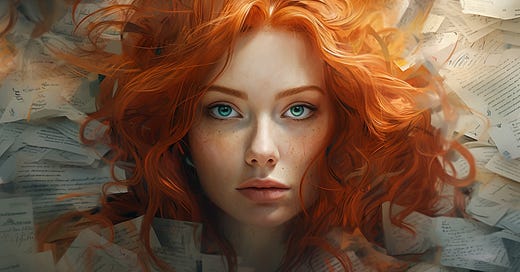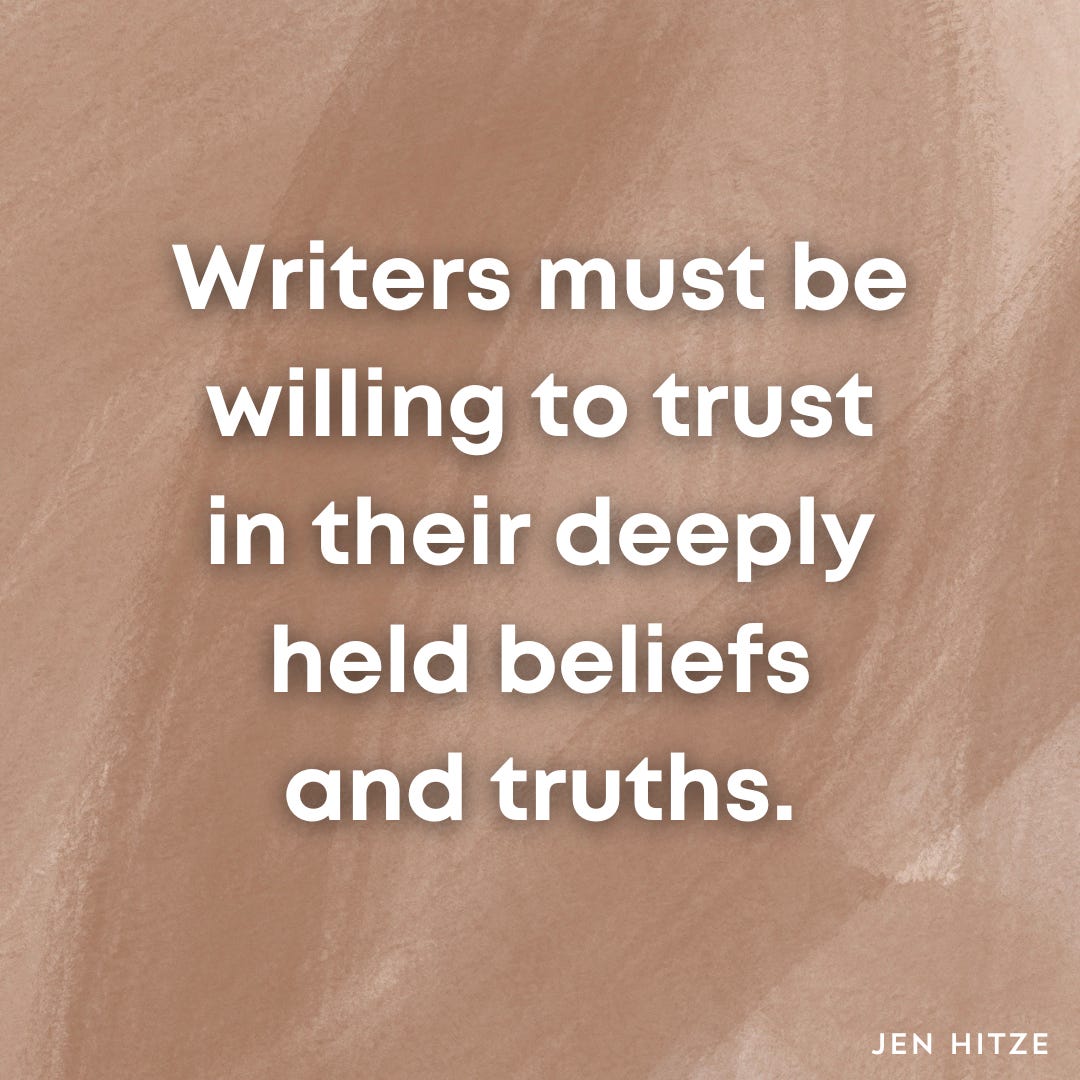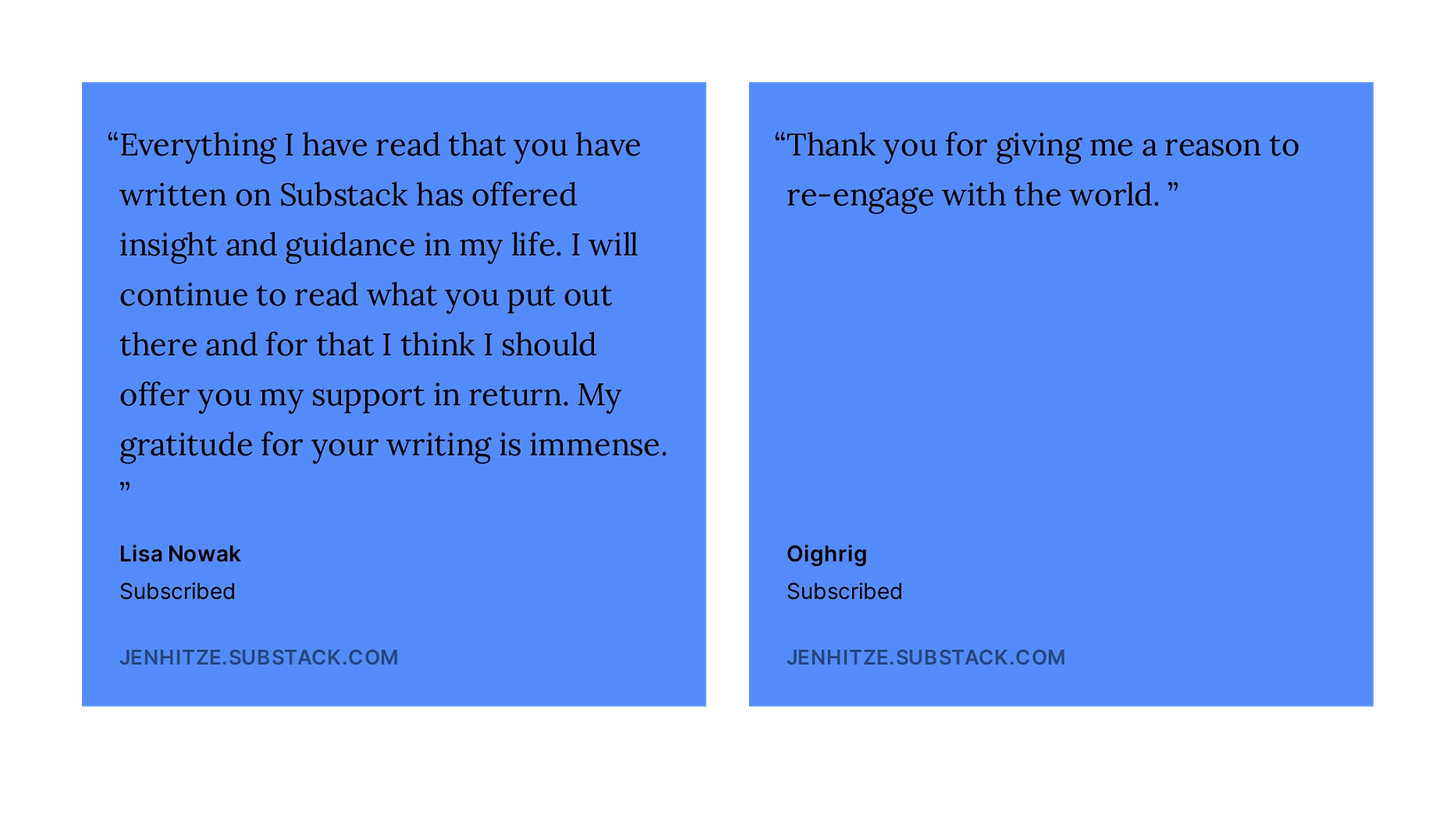On Writing and Creativity
Personal Reflections, Worldly Words, Beyond Writing, Fear of Creativity, A Creative Path
I.
Personal Reflections
Most people write one or both of the following types of personal essays:
The Diary Essay: Resembling entries one might find in a personal journal, these essays often lack a cohesive structure, consisting instead of a stream of consciousness. Writers pour out their inner thoughts and feelings with the hope of extracting them from the black hole of their subconscious. These passive essays often come peppered with the frequent use of I’s: I felt…, I thought…, I went…. Once complete, the authors of these reflections may opt to publish them simply because of the time and energy invested in drafting them.
The Notebook Essay: In contrast, notebook essays are compiled from personal notes (e.g., highlights and bullet points) taken from previously published works, such as books or articles. Mimicking academic papers, these essays aim to demonstrate comprehension of another’s ideas. They typically consist of definitions, annotations, and examples, often resembling the dryness of a textbook. Despite their potential monotony, writers of these essays may choose to publish them because of the sunk time and effort required to transform their notes into a cohesive essay.
While diary and notebook essays can aid in surfacing personal dilemmas or solidifying new concepts, they generally lack resonance with readers. That’s because they aren’t written for others; they’re written for oneself. They make great practice material but are not great works to publish. Other people have their own inner problems to uncover and notes to take; they are unlikely to find interest in reading yours.
II.
Worldly Words
As someone who once primarily wrote diary and notebook essays, I’m happy to report that my writing style has evolved significantly (or so it seems). Instead of hurling my problems onto a page, I now propose solutions. And rather than relying solely on others’ ideas, I strive to come up with my own.
From experience, I’ve observed that writers often publish diary and notebook essays out of fear that their own ideas and solutions might not measure up. They hesitate to offer advice, fearing they may lead themselves or others astray. However, the truth is that each of us harbors extraordinary ideas and intuitively knows how to resolve our most significant challenges. What we lack is faith in ourselves.
Good writing requires courage and vulnerability. Writers must be willing to trust in their deeply held beliefs and truths. They must dispel the illusion that they are alone in experiencing inner struggles and emotions. And instead of regurgitating others’ ideas, they must share their own convictions.
We may fear exposing our vulnerabilities to the world, yet our struggles are remarkably universal. For every existential crisis we face, thousands, if not millions, of others are undergoing similar experiences. While many writers merely contribute to the ongoing list of humanity’s collective problems, few offer solutions. To truly aid ourselves and others through our work, we must go beyond fear and tap into our intuitive Knowing. Then, we must write what we Know.
III.
Beyond Writing
“Through the ordinary state of being, we’re already creators in the most profound way, creating our experience of reality and composing the world we perceive.”
Rick Rubin, The Creative Act
Don’t consider yourself a writer? This counsel still holds true for you. We all shape our personal realities and convey our experiences to others through communication. How we express ourselves – whether in writing, speech, or actions – directly reflects our mind’s inner dialogue.
Is your inner dialogue constantly dwelling on emotional matters? Is it conforming to others’ perspectives of the world? Or is it quietly attuned to the still, small voice within? Your response to these questions can shed light on how others perceive you.
Discussions that revolve solely around personal issues or recycled ideas lack soul and meaning. People yearn to engage with the authentic, genuine you. However, you must first know yourself before showing that side to others. To understand yourself, you must begin by trusting yourself.
You don’t need to prepare extensively before stepping into the world. You just have to show up as you really are. Titles, labels, degrees, or a lengthy list of accomplishments are unnecessary. All that’s required is belief in yourself and your boundless wellspring of ideas. When you present your true self to the world, you’ll astound people. Most never dare to show up as themselves.
IV.
Fear of Creativity
Allow me to share these insightful words from Elizabeth Gilbert:
Let me list for you some of the many ways in which you might be afraid to live a more creative life: You’re afraid you have no talent. You’re afraid you’ll be rejected or criticized or ridiculed or misunderstood or—worst of all—ignored. You’re afraid there’s no market for your creativity, and therefore no point in pursuing it. You’re afraid somebody else already did it better. You’re afraid everybody else already did it better. You’re afraid somebody will steal your ideas, so it’s safer to keep them hidden forever in the dark. You’re afraid you won’t be taken seriously. You’re afraid your work isn’t politically, emotionally, or artistically important enough to change anyone’s life. You’re afraid your dreams are embarrassing. You’re afraid that someday you’ll look back on your creative endeavors as having been a giant waste of time, effort, and money. You’re afraid you don’t have the right kind of discipline. You’re afraid you don’t have the right kind of work space, or financial freedom, or empty hours in which to focus on invention or exploration. You’re afraid you don’t have the right kind of training or degree. You’re afraid you’re too fat. (I don’t know what this has to do with creativity, exactly, but experience has taught me that most of us are afraid we’re too fat, so let’s just put that on the anxiety list, for good measure.) You’re afraid of being exposed as a hack, or a fool, or a dilettante, or a narcissist. You’re afraid of upsetting your family with what you may reveal. You’re afraid of what your peers and coworkers will say if you express your personal truth aloud. You’re afraid of unleashing your innermost demons, and you really don’t want to encounter your innermost demons. You’re afraid your best work is behind you. You’re afraid you never had any best work to begin with. You’re afraid you neglected your creativity for so long that now you can never get it back. You’re afraid you’re too old to start. You’re afraid you’re too young to start. You’re afraid because something went well in your life once, so obviously nothing can ever go well again. You’re afraid because nothing has ever gone well in your life, so why bother trying? You’re afraid of being a one-hit wonder. You’re afraid of being a no-hit wonder.”
Elizabeth Gilbert, Big Magic
V.
A Creative Path
Creativity isn’t a rare talent, an elusive realm, or a specialized vocation. It’s an innate aspect of human existence.
Being creative means bringing forth something new into the world, a feat we accomplish daily. There’s no prerequisite to becoming an artist or living a more creative life. Remarkable creations are within our grasp because we, ourselves, are singular works of art. We can tap into the Soul Of All That Is And All That Ever Will Be because we are made of it. In the words of Carl Sagan, “We are composed of star stuff” – we are boundless, spirited, innovative beings inhabiting a cosmos teeming with creativity.
Creativity isn’t about seeking validation, wealth, or fame. It’s about materializing the depths of your being into tangible form. Others don’t need to appreciate, comprehend, or even be made aware of your art because it’s not for them; it’s for you.
Create for yourself. Create because you can. Create because it’s your inherent right. Create because this might be your only opportunity to do so.
5 Big Ideas is a free newsletter and a labor of love. If you find value in my ideas each week, kindly consider financially supporting this newsletter for $5.
Another way to support 5 Big Ideas is to share them with friends!
A BIG thank you is due to: Dave, Lisa, Debbie, Michael, Oighrig, and Chris for your generous financial support – I’m beyond words! ❤️
...and for these remarkably gracious testimonials!







You are clearly "quietly attuned to the still, small voice within." The still voice is often too quiet to be heard over the din of the three stooges' routine: lizard brain, monkey mind, and ego. Walking and having them all recite the prayers of the rosary was interesting for a while. I attempted to maneuver the elephant subconscious, hoping the whispering ant... There is one mind. Never let it fly the plane. It will, anyway. No metaphor, no allegory, no symbol, no analogy, no picture, no image, no comparison, no distinction, no parallel, no correlation, no aphorism is necessary, or present inside NOT KNOWING. All creation begins in NOT KNOWING. The space for possibility is NOT KNOWING. The sound of silence is, I don't know.
Your potent post is published one day after Rick Rubin’s “The Creative Act” book arrived in my mailbox.
I underlined his exact passage you quoted!
Thank you so much for your encouraging words!✍️🙏✍️